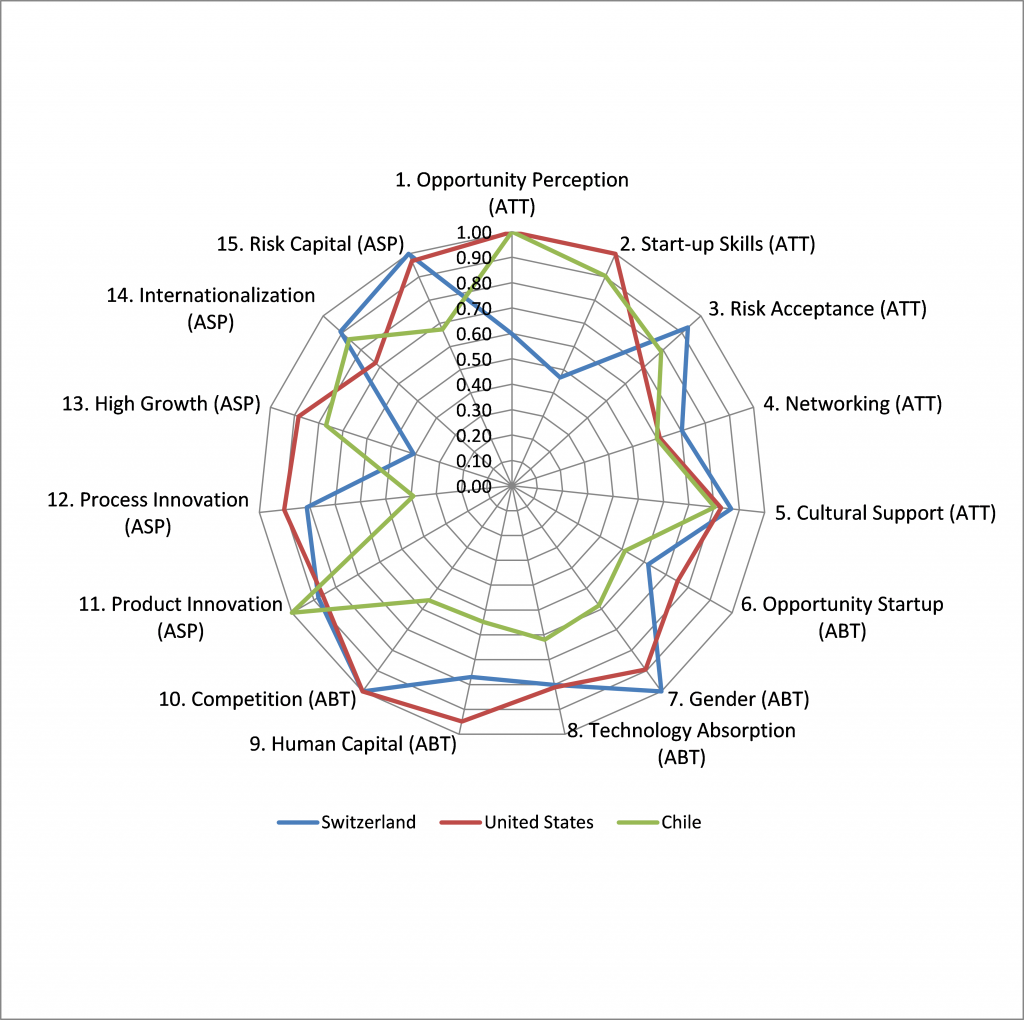This year’s CTI Entrepreneurship Conference in Winterthur, Switzerland featured a GEDI analysis of Switzerland’s entrepreneurship ecosystem. CTI (Swiss Council for Technology and Innovation) is the main funding agency for innovation and entrepreneurship in the country. The conference was organised on September 2-3, 2014.
Switzerland’s entrepreneurship ecosystem is ranked as 5th in the GEDI 2014 ranking. Consistent with this, the country’s GEDI profile shows important overall strengths, but also, some weaknesses. Switzerland ranks on par with the USA (global 1st rank) for most of the Ability and Aspiration pillars, except for High Growth, Human Capital, and Opportunity Startup. The difference to the US is particularly clear for High Growth aspirations, where the US score is nearly 0.90 (1 being the maximum) and Switzerland’s score is only 0.40.
The Swiss weakness in High Growth is interesting – and also, revealing. Switzerland is known for its stability and long-term orientation: after all, this is a country where you can get a 100-year mortgage! However, while stability is great for business, our discussions suggested that stability may sometimes conflict with high growth aspirations. Switzerland is known for its high-quality SMEs that specialize in highly demanding precision-engineering applications. Longevity is important: family businesses are often transferred in a long line of successive generations. But could this quest for longevity sometimes inhibit the pursuit of rapid growth? Remember that high-growth businesses can also be volatile, and a period of rapid growth may sometimes be followed by decline, even demise. While some high-growth businesses end up as high-flyers, others may end up in bankruptcy.
This is a scenario with which many Swiss feel uncomfortable: in a country where stability and reliability are valued, the prospect of high risk associated with potential high reward is not as appealing as in some countries.
Could this factor hold back the Swiss entrepreneurship ecosystem? Perhaps. The quest for stability and long-term orientation in customer relations may also narrow your perspectives. Whilst there may be growth opportunities available, will the preference for stability and profitability prompt too many to overlook these opportunities? There is no obvious answer. One wonders, though, whether a higher growth orientation could not help Switzerland better exploit the innovation potential offered by its strong science base.


Great questions! Please, let us hear more.
My one-page analysis of Chile is now posted. More to follow… 😉